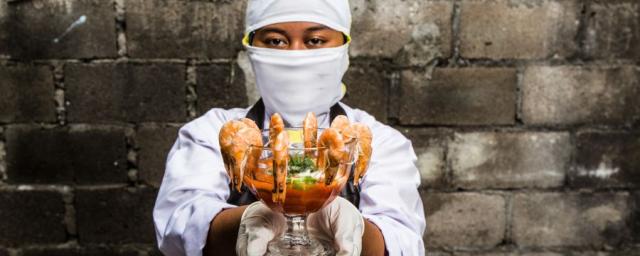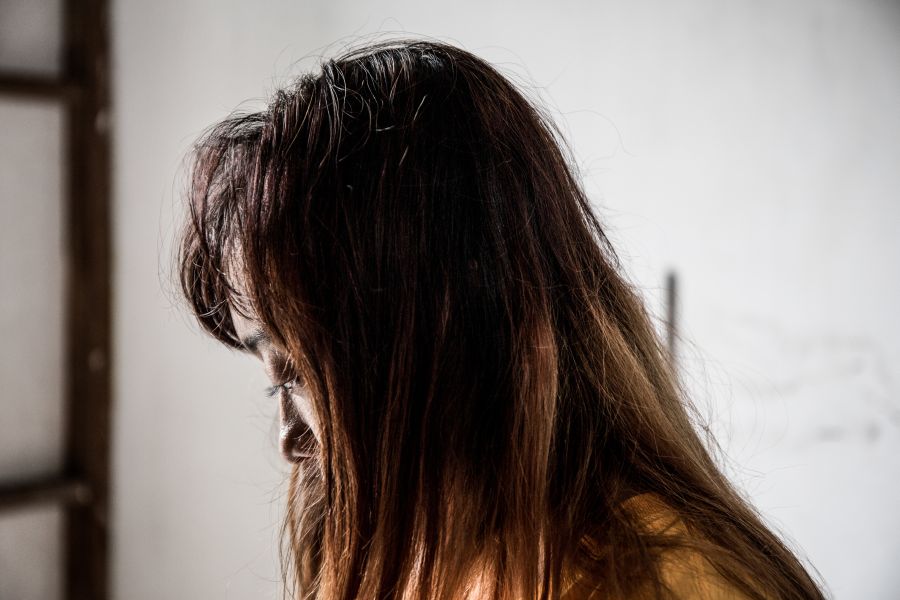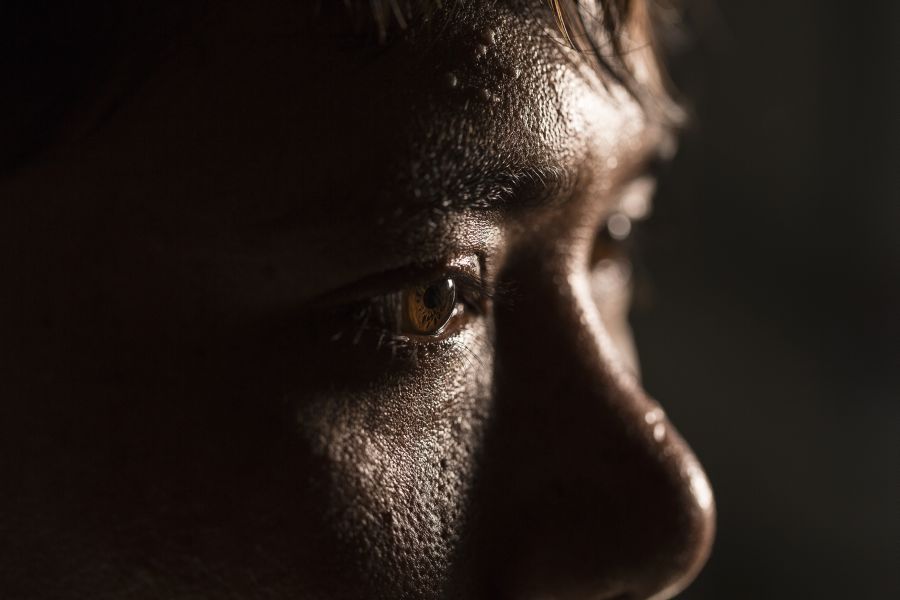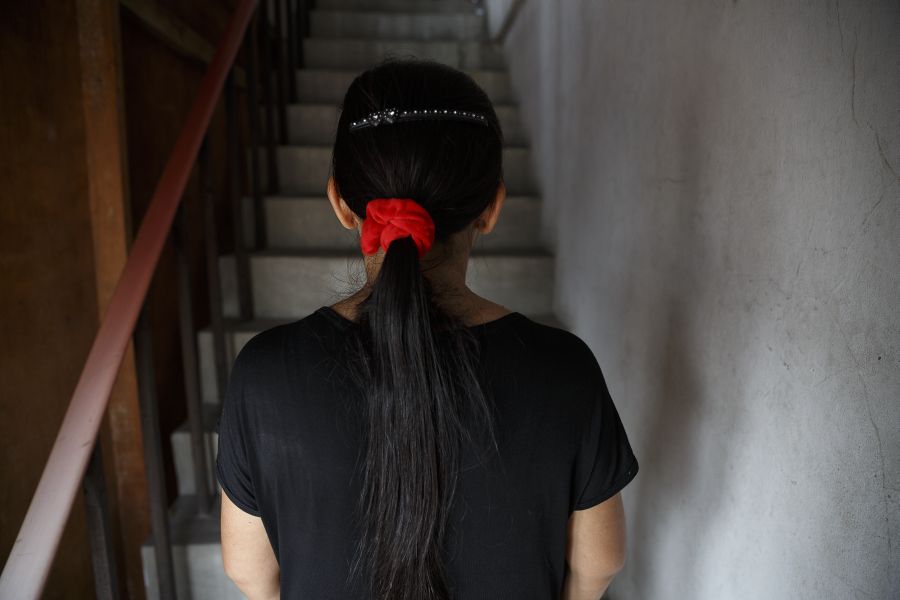
The seafood industry is worth more than $150bn per year. But it comes at an unacceptable price: the suffering of the people who produce it.
In Southeast Asia, workers describe the harsh conditions that are far too common in this industry: low pay, extreme hours, unsafe and unsanitary working conditions and verbal abuse. Women do most of the lowest paid and least secure jobs, further excluded from even basic benefits available to many men such as minimum wages, sick pay or pensions.
Ava, Cho, Dewi and others are sharing their stories from seafood processing plants in Indonesia and Thailand – they want us to know what’s behind the price of food we eat.
Stand with them and help end the suffering behind your food.
I was not allowed to drink

Susi prepared shrimp at a factory in Indonesia. The freezing conditions – to keep the shrimp fresh – were unbearable for staff. Her hands were bruised from the work she did. But she couldn’t feel it because the temperature was too low. “I just could not stand the cold,” said Susi. “The first time I worked there I caught the flu, and couldn’t work for two days.”
It wasn’t just the cold. Unmeetable targets meant she had to keep working, often taking on three hours’ overtime. She often missed lunch or didn’t take a toilet break.
Stopping to quench thirst was impossible. “We got the opportunity to drink at the beginning of work and at the end of work. While we were working there wasn’t time to rest. I was not allowed to drink.” (Photo: Adrian Mulya)
When people fall into the sea at night, they only know it the next morning

Cho arrived from Myanmar to work on fishing boats in Thailand when he was 17. He’s worked on 10 boats in the last decade, and has been injured numerous times. Dangers are omnipresent, like the giant waves churned by storms.
“We urinate at the back of the boat,” Cho explains. “There is no toilet. You have to hold onto something, like a rope. The place is made for one person to stand only. It’s dangerous. When the boat is running, when there are big waves, you can slip and fall into the water and drown.”
And if a worker does slip and fall, there’s no guarantee anyone will notice until it’s too late. “It happened on my boat,” Cho remembers. “An old man slipped and fell into the sea. It was dark and no one was aware of it. When people fall into the sea at night, they only know the next morning when they realize someone is missing. The body was stuck in the net.” (Photo: Suthep Kritsanavarin/Oxfam)
If you got pregnant, you had to quit

Dewi worked at a shrimp processing plant in Indonesia until she was eight months pregnant. No maternity leave meant she had to leave her job.
Dewi had taken several pregnancy tests. Not because she was trying to get pregnant, but because her employer demanded it. “If we were pregnant we wouldn’t be accepted [for work],” she said.
The factory where Dewi worked provides shrimp to big supermarkets. For staff like Dewi, there was no maternity leave: if you got pregnant, you had to quit. And because they were frequently tested, there was no hiding it either. (Photo: Adrian Mulya)
I was bleeding like tap water

For more than three-quarters of his life, Sornlak, 36, worked aboard fishing boats, toiling on the waters off Thailand and Indonesia. Because of a devastating accident at sea, he lost his right arm when his sleeve got tangled in a piece of machinery.
“Someone told me to tighten the reel as it’s loosening at the time,” he said. “I didn’t know whether it’s loose or tight, so I did fix it by hand - and I didn’t realize my sleeve got into it.” That’s the last thing he remembers.
“I was bleeding like tap water,” Sornlak said. “I remember the wave was as high as two meters, but the boat just carelessly beat the waves all the way back to the shore, not slowing the engine at all. The boat owner was worried I would die on his boat.” (Photo: Suthep Kritsanavarin/Oxfam)
We don’t have the right to ask

Ava is a shrimp-peeler at a large plant in Thailand. All day, almost every day, from 6 a.m. to 7 or 8 p.m., she’s driven to peel as fast as she can, pulling off the translucent coats off shrimp after shrimp, enduring the harsh scolding of the lead worker for any mistakes made, and - hardest of all - carrying a weight in her heart for her daughter, who is now living many miles away in Myanmar, Ava’s home country.
Though there are no restrictions on bathroom breaks, workers in her position rarely go, says Ava, because they don’t want to sacrifice precious income-earning time. “We will get paid as you work,” says Ava. “I get 6,000 baht, but the slower workers get less than 6,000.”
And whether the price she is paid per kilo is fair or not, Ava can’t say. “I do not know the real price of shrimp,” she says. “The leaders didn’t tell us and we do not have the right to ask.” (Photo: Suthep Kritsanavarin/Oxfam)
We can change this
Human suffering should never be an ingredient in the food we eat.
Join us and stand with the people behind the price.